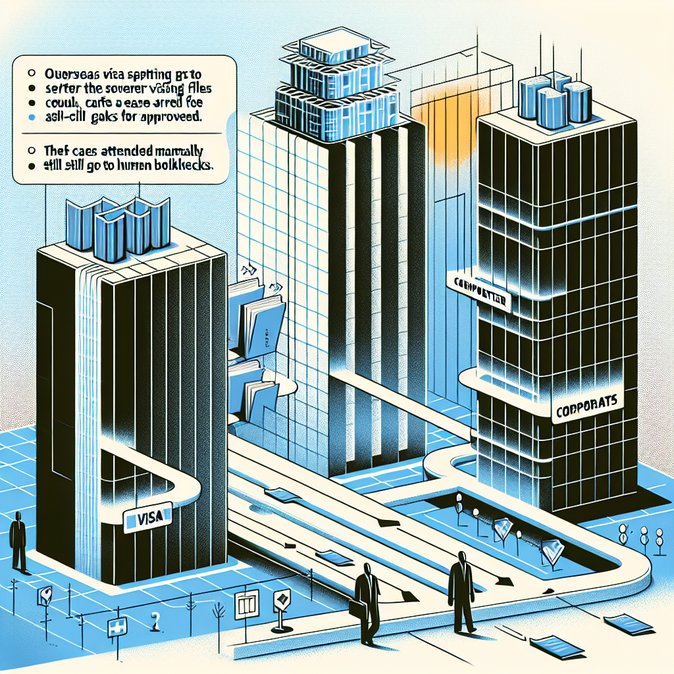
Germany’s Federal Foreign Office and Interior Ministry have quietly turned on an artificial-intelligence (AI) triage engine in the visa sections of Manila, Bengaluru and São Paulo. Announced on 21 November and live since 22 November, the pilot is the first time Germany has let a machine-learning model pre-screen long-stay (D-category) visa files. Applicants still complete the familiar online form and upload documents, but the file is then routed through a cloud-based engine that checks data consistency, verifies degree-certificate serial numbers against UNESCO and World Education Services databases, and cross-references employer details with EU sanctions lists.
Files that meet the “low-risk” definition—full documentation, recognised university degree, clean security check and a sponsor in good standing—are auto-flagged for “fast-clearance”. A consular officer receives a concise risk summary and can approve the case in minutes. Complex or ambiguous cases go to the normal manual queue, where the AI-generated memo helps staff focus on red flags rather than data entry.
![Germany activates AI-powered triage at three visa posts, slashing skilled-worker wait times]()
Internal dashboards shared with parliamentarians show dramatic early results: intra-corporate-transfer permits now average 21 days instead of 54, and EU Blue Cards are down to 18 days from 42. Error rates—measured by subsequent requests for additional evidence—have also edged lower. Officials stress that humans still make the final decision and can override the algorithm, addressing civil-liberties concerns raised by Germany’s data-protection commissioner.
For employers, the implications are immediate. Germany’s revised Skilled Immigration Act already broadened eligibility, but hiring teams have struggled with consular backlogs. Faster decisions help multinational projects avoid costly delays and give Germany an edge over the Netherlands and France, which are only beginning to test similar tools. Mobility managers should audit document quality (PDF/A files, verifiable QR codes) because incomplete dossiers will be shunted to the slower manual lane.
The pilot will run until March 2026. If the numbers hold, Berlin plans to expand AI screening to all 140 visa sections worldwide and to embed the engine inside the “fast-track” channel launched this quarter. Companies that want to benefit should encourage assignees to opt in to automated processing and review privacy-consent language in offer letters.
Files that meet the “low-risk” definition—full documentation, recognised university degree, clean security check and a sponsor in good standing—are auto-flagged for “fast-clearance”. A consular officer receives a concise risk summary and can approve the case in minutes. Complex or ambiguous cases go to the normal manual queue, where the AI-generated memo helps staff focus on red flags rather than data entry.

Internal dashboards shared with parliamentarians show dramatic early results: intra-corporate-transfer permits now average 21 days instead of 54, and EU Blue Cards are down to 18 days from 42. Error rates—measured by subsequent requests for additional evidence—have also edged lower. Officials stress that humans still make the final decision and can override the algorithm, addressing civil-liberties concerns raised by Germany’s data-protection commissioner.
For employers, the implications are immediate. Germany’s revised Skilled Immigration Act already broadened eligibility, but hiring teams have struggled with consular backlogs. Faster decisions help multinational projects avoid costly delays and give Germany an edge over the Netherlands and France, which are only beginning to test similar tools. Mobility managers should audit document quality (PDF/A files, verifiable QR codes) because incomplete dossiers will be shunted to the slower manual lane.
The pilot will run until March 2026. If the numbers hold, Berlin plans to expand AI screening to all 140 visa sections worldwide and to embed the engine inside the “fast-track” channel launched this quarter. Companies that want to benefit should encourage assignees to opt in to automated processing and review privacy-consent language in offer letters.








